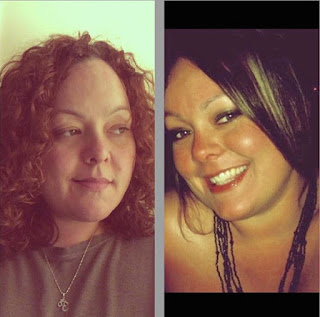The Split between I and Me: A Step towards Enlightenment through a Grammar Lesson
For almost 10 years, in front of thousands of college
students, I taught English. While English Instructor is not an especially
enigmatic title, there are some pretty common misconceptions about what goes on
in those classrooms. When I would tell people what I did, most would quietly
respond with an embarrassed, “Oh, I’m terrible at grammar.” I heard it so often
that I had a rehearsed, “Well, I can barely add,” reply that I’d clumsily toss
into the conversation. What most people don’t realize is that those of us who
hold advanced English degrees didn’t go to school to learn grammar. We studied
literature, rhetoric, and critical thinking. We looked at the nuances of
language and how those slight variations have decided our fate through the
creation of laws and institutional oppression. We examined cultural movements,
historical inaccuracies, and the human condition. And we wrote – we wrote a
lot. Ask any college English instructor what he or she does, and the response
will overwhelming include some of those words. Rarely will anyone say, “I teach
pronoun case.”
Most of us weren’t confident in our own grammar usage when
we first started teaching. As a novice instructor, I would write “Awkward
Construction” and “Revise for Clarity” on the majority of student papers. Those
phrases helped with the revision process and kept me from having to figure out
what seemingly arbitrary grammatical law had been broken. Sometime around my
third year, though, I taught my first developmental writing course. These
non-credit courses are for students who, for whatever reason, are unable to be placed
in composition courses. In general, they are designed around reading
comprehension and, as expected, grammar.
Like anything, to be able to teach grammar, I had to learn
grammar. Textbook after textbook, quiz after quiz, I learned the rules. To my
surprise, they weren’t arbitrary at all. They had long histories, complicated
changes, and systematic patterns. I found them fascinating. I spent days
researching the shifts from Old English to Middle English and Middle English to
Modern English. Within a few months, I was confident and ready to answer any
question a student might grumpily toss my way. Because I loved it, my students
began to love it. Although my background was in post-modern literature and
theory, I volunteered to teach every ENC 0001 course that showed up on the
schedule. In a field like writing, we live the in the gray area, that place
where good and bad are subjective terms that teeter back and forth depending on
the situation. When I taught grammar, I was able to give definitive right and
wrong answers, and that was often comforting… even if it did mean a certain
level of consistency that sometimes became monotonous.
 One of my favorite grammar lessons to teach was pronoun
case. I would always tell the students that pronouns, as simple as they are,
are some of the most commonly misused words in all of English. We’d talk about
who and whom, and she and her, and all those other pronouns that sound weird to
people when they are used correctly. I must have drawn the Subject/Object chart
on the whiteboard 100 times. I’d tell them, “Don’t go by what sounds right. All
you have to do to know whether to use I or me is to answer the question, 'Am
I the subject – am I doing something; or, am I the object – is something being
done to me?'” Funny how understanding subjects and objects can change the way
we see our own
One of my favorite grammar lessons to teach was pronoun
case. I would always tell the students that pronouns, as simple as they are,
are some of the most commonly misused words in all of English. We’d talk about
who and whom, and she and her, and all those other pronouns that sound weird to
people when they are used correctly. I must have drawn the Subject/Object chart
on the whiteboard 100 times. I’d tell them, “Don’t go by what sounds right. All
you have to do to know whether to use I or me is to answer the question, 'Am
I the subject – am I doing something; or, am I the object – is something being
done to me?'” Funny how understanding subjects and objects can change the way
we see our ownsituations.
About a year ago, there were the first talks of moving me
into administration. And since this is a blog about subjects and objects, notice
that I am not the subject of that sentence. These conversations had been going
on for months behind closed doors. Finally, after several other things had
fallen into place, I became aware of them. My initial response was quick, without
hesitation, “No, thank you.” Then, I thought more and more about it. I called
my mentor and asked for his advice; I talked to my most trusted
colleague and friend, whose knowledge of educational administration is rivaled
only by her devotion to seeing me happy; and I spent time asking myself if I
was really ready to come out of the classroom. Although I loved teaching (and
will probably one day return to it), I was ready for something different,
something that would get me back to that gray, chaotic area I so adore.
My final interview – there were four in total – for this
position was in Ft. Lauderdale with the person who is, essentially, over all of
academics. During my interview, he told me that he was excited to have someone
with a liberal arts background in this role. He said that he wanted someone who
was able to think critically about situations and understand that, at the end
of the day, we deal with philosophical questions that don’t always have right
and wrong answers. “We could train anyone to be a manager,” he said, “but we
want thinkers, people who are able to accept the complexities of leading human
beings who all have their own motivations.” I realized (and exclaimed), at that
exact moment, that my entire academic life had been preparing me for this. He
shook my hand and welcomed me to the position.
After that interview, as I drove back to Orlando, I thought about
how I responded. The interview lasted several hours, but all I could think
about was how I had phrased that one key sentence. Grammatically, the sentence
was perfectly acceptable. Logically, however, the statement sounded trite and weak. As
someone who had studied the subtleties of language, why would I have said that
my academic life had prepared me? Why was I the object of that sentence? Why had I allowed myself to be acted
upon? My academic life wasn’t even a living thing – how could it have been what
prepared me? I was trying to show prowess and confidence; I should have been
the subject.
The next week I started in my new position and the error in
rhetorical logic that had plagued the four-hour drive home had all but left my
mind. Like any nagging thought, though, nearly five months later, it reappeared.
It was in a different form, but the meaning was the same. I was reading Tolle’s The Power of Now for the second time when I came across his chapter titled "Enlightened Relationships." In that chapter he presents the argument that in
order to find fulfillment in our relationships – platonic, familial, sexual,
spiritual – we must first realize that we often split ourselves into two: I and
me – the subject and the object. He suggests that this duality is the root
cause of unnecessary complications and conflicts. Instantly, I realized that
this profound statement about enlightenment was, at its heart, a grammar
lesson. How we see ourselves, how we see others, and how we experience pain,
happiness, loss, even excitement, all revolve around whether or not we use I or
me. Are we subjects, or are we objects?
Even when we find ourselves as objects, we still have a
choice. There are situations that will always put us in the object case, but
how we react, how we respond, and how we feel all return us to the positions of
power – we have the choice to become the more powerful subjects. What an empowering realiziation. Then, without any form of mental warning, the clarity
dissipated and I felt the twinges of focused confusion.
Once more I returned to my professional life. I thought back
to the drive from Ft. Lauderdale to Orlando, when I felt such irritations with
myself because I thought I could have responded to an interview question better
– even though I got the job. I thought about the way I’d tell my Professional
Writing students to use passive voice when they didn’t want to accept
responsibility. “If your company does something questionable, focus on the
action, not the ones who did it,” I’d say. I even thought about the “Revise for
Clarity” statements that I left when I was unsure of the error. Becoming that
all-powerful I also means accepting responsibility for the decisions you have
made.
With practice, through mediation and awareness, almost every
spiritual guide suggests that this split between I and me can be
mended. I like the way Tolle says it: “In the state of enlightenment, you are
yourself. […] The split caused by the self-reflective consciousness is healed.”
Perhaps that’s what self-love and self-awareness are all about. Perhaps all
those grammar lessons were so appealing to me because they were ways to examine
our existence through simple rules… but like any good writer will tell you, you
learn the rules so that you know when to break them. (I've broken about three in this blog alone because I want the tone to be contemplative.) Even in my new position,
there are times when we break policies because we know the good outweighs the
consequences.
Since I can remember, I’ve examined dualities: good/evil,
dark/light, male/female, and now, as I’m realizing, I/me. Tolle posits that
when we achieve enlightenment, those dualities cease to exist, or as he says,
the “curse [will be] removed.” Are good and bad completely subjective? Do
gender roles exist solely because we want them to? Questions like this are so
perfectly complicated. I could spend years thinking about them. In terms of
achieving enlightenment, I still have a lot of work to do. I struggle,
especially with self-love, but I think I am closer to self-awareness than I
have ever been before. I’m slowly getting better at remedying the conflict
between I and me. And as much as I’d like to thank the spiritual texts and the
years of meditation, I think most of the credit really belongs to “Chapter 4: Pronouns.”
**********************
Although I see some inherent flaws in his logic, I'm presenting Tolle's section here:
But do you need to have a relationship with yourself at all?
Why can’t you just be yourself? When you have a relationship with yourself, you
have split yourself into two: “I” and “myself,” subject and object. That
mind-created duality is the root cause of all unnecessary complexity, of all
problems and conflict in your life.
In the state of enlightenment, you are yourself – “you” and “yourself”
merge into one. You do not judge yourself, you do not feel sorry for yourself,
you are not proud of yourself, you do not love yourself, you do not hate
yourself, and so on. The split caused by self-reflective consciousness is
healed, its curse removed. There is no “self” that you need to protect, defend,
or feed anymore. When you are enlightened, there is one relationship that you
no longer have: the relationship with yourself. Once you have given that up,
all your other relationships will be love relationships.


Comments
Post a Comment